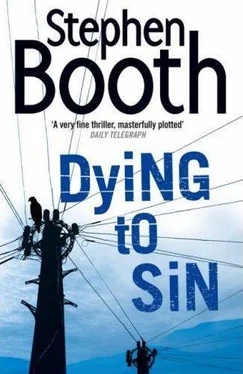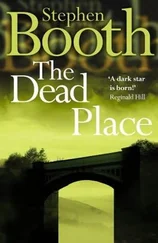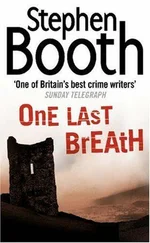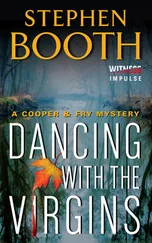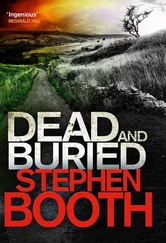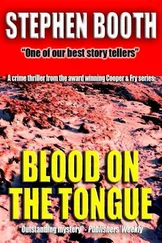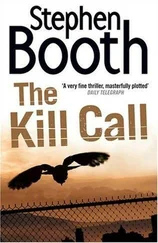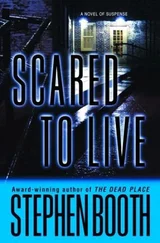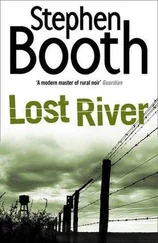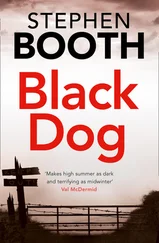Stephen Booth - Dying to Sin
Здесь есть возможность читать онлайн «Stephen Booth - Dying to Sin» — ознакомительный отрывок электронной книги совершенно бесплатно, а после прочтения отрывка купить полную версию. В некоторых случаях можно слушать аудио, скачать через торрент в формате fb2 и присутствует краткое содержание. Жанр: Полицейский детектив, на английском языке. Описание произведения, (предисловие) а так же отзывы посетителей доступны на портале библиотеки ЛибКат.
- Название:Dying to Sin
- Автор:
- Жанр:
- Год:неизвестен
- ISBN:нет данных
- Рейтинг книги:3 / 5. Голосов: 1
-
Избранное:Добавить в избранное
- Отзывы:
-
Ваша оценка:
- 60
- 1
- 2
- 3
- 4
- 5
Dying to Sin: краткое содержание, описание и аннотация
Предлагаем к чтению аннотацию, описание, краткое содержание или предисловие (зависит от того, что написал сам автор книги «Dying to Sin»). Если вы не нашли необходимую информацию о книге — напишите в комментариях, мы постараемся отыскать её.
Dying to Sin — читать онлайн ознакомительный отрывок
Ниже представлен текст книги, разбитый по страницам. Система сохранения места последней прочитанной страницы, позволяет с удобством читать онлайн бесплатно книгу «Dying to Sin», без необходимости каждый раз заново искать на чём Вы остановились. Поставьте закладку, и сможете в любой момент перейти на страницу, на которой закончили чтение.
Интервал:
Закладка:
‘By the way, was there anything interesting from the postmortem?’ asked Cooper.
‘A vague stab at twelve months since time of death, and an excessive amount of tooth decay.’
‘Was Mrs van Doon in an unhelpful mood?’
Fry sighed. ‘No, not really. She just has an impossible job, like everyone else.’
Watching Fry walk back to her own desk to phone Mr Goodwin, Cooper remembered how ambitious she was, how often she talked about moving up or moving on. At one time, he’d thought that Fry’s sister, Angie, would be enough to keep her in the area, but now he wasn’t so sure.
The relationship between the two sisters had always baffled him, and still did. The odd thing was that Diane had seemed to feel closer to Angie when she was missing than she did now that her sister was very much around. It didn’t fit with Cooper’s own ideas about family at all. But was his experience necessarily the way things ought to be?
Cooper rubbed the tiredness from his eyes and returned to the farm records. In seconds, he was back in the past, living a mouth-to-mouth existence at Pity Wood Farm.
13
Aaron Goodwin was between clients. Nevertheless, he gave Fry the impression that he’d charge her by the hour if she took more than five minutes of his time.
‘Why did we buy the farm?’ he said. ‘I can answer that in one word. Horses.’
Fry didn’t know what Mr Goodwin looked like, but she was enjoying a mental image of him arriving at Pity Wood Farm in its present condition. She pictured him wincing at the mud, the abandoned builders’ equipment, the police tape protecting the grave sites.
‘My wife and my daughters are mad about horses,’ he explained. ‘They’ve plagued me for years to find a house in the country where we could have our own stables and paddocks, a menage, somewhere to park a couple of horse boxes. As soon as we had enough money, it was just a question of locating the right property.’
‘And Pity Wood was it?’ asked Fry, barely able to keep the incredulity out of her voice.
Goodwin paused, as if checking his watch. ‘It was a bit of a stretch, admittedly, considering all the work that needs doing to the place. The cost of the alterations and renovation is almost as much as the purchase price, to be honest. I really hope it’s going to be worth it.’
‘Well, you’re certainly going to be in the country,’ said Fry. ‘Have you any experience of rural life?’
‘Not at all. We’re strictly city people.’
‘Then I’m afraid some things might come as a bit of a shock, sir.’
As a city girl herself, Fry might have felt a degree of kinship with the solicitor, if it weren’t for the fact that he was moving to the countryside voluntarily. He was bringing it all on himself, and it diluted her sympathy. But perhaps she ought to enlighten him a bit.
‘Country people can seem like an alien race, you know. They’re very, er … conservative, in some ways. In others, their activities are way out on the edge. Their lives seem to revolve around the church and the village pub.’
‘Rather than the office and the bistro, you mean?’ said Goodwin.
‘And a lot of them really do like shooting things, I’ve found.’
‘We have that in Manchester, except they shoot people instead of foxes and grouse. But at least they make you feel part of a community out there, don’t they?’
‘You haven’t visited Rakedale, then?’ asked Fry.
Goodwin paused. ‘We didn’t make the decision lightly. There are some questions you have to ask yourself before you move to the country.’
‘Oh, yes. Like whether you can cope with mud and the stink of a freshly fertilized field.’
‘I was thinking of whether you’ll be able to survive without theatres and nightclubs. But perhaps you never had to ask yourself those questions, Detective Sergeant.’
‘Not really.’
There was a moment’s silence, and Fry had a suspicion that the solicitor was only half listening, perhaps taking the chance to read a file before his next client arrived.
‘Mr Goodwin, are you at all aware of the history of Pity Wood Farm?’
‘Its history? What do you mean? The estate agent’s details mentioned the date the house was built. Late eighteenth century, I believe.’
‘You must know something about the previous owners. Did you ever meet them?’
‘No, never. The property was already empty when we viewed it.’
‘Are you sure? What about Mr Raymond Sutton?’
‘Sutton is the name on the deeds, that’s all I know. Why do you ask?’
‘I wondered if you’d visited Pity Wood some time previously.’
‘Oh?’
‘I thought you might have had your eye on it as a suitable property if it ever came up for sale. It’s the sort of thing people do when they have a plan, like yours for keeping horses. They see the ideal place, and they keep it in mind for the future.’
‘Yes, I suppose they do. But that wasn’t so in our case. To be honest, Sergeant, I’m not all that familiar with the Peak District, let alone Rakedale.’
Fry had to accept that it sounded like the truth. ‘Thank you, sir.’
‘Now that you mention the farm’s history, though …’ said Goodwin.
‘Yes?’
‘This murder case gives it rather an interesting history, doesn’t it? Bodies buried in the farmyard and all that.’
‘We don’t actually know for certain — ’ began Fry.
‘No, no, of course. But it’s rather a selling point.’
‘A selling point? It won’t put you off the place, then?’
‘Not at all. It adds a macabre charm. Something to tell our friends when they come to visit.’
‘You’re really looking forward to living at Pity Wood Farm, aren’t you?’ said Fry. ‘You really are.’
‘You sound as though you’re trying to put me off.’ Goodwin chuckled. ‘You know, some people told us once that, when we move to the country, we’ll have to keep quiet for at least five years. Don’t go poking your nose in, they said. No organizing things, or making changes. It’s considered interfering. You’re an outsider and you have to serve an apprenticeship, until you’re accepted.’
‘And I suppose you don’t think that will apply to you?’ said Fry. ‘Well, Mr Goodwin, you don’t know the half of it.’
Cooper was discovering that there could be a whole social history buried in farm records. It was possible to trace the changes that had taken place in farming over the decades through the day-today details of income and expenditure.
For example, until the 1980s, government grant schemes had been committed only to increasing food production, which meant they often supported plans to improve rough pasture or increase grazing levels, which damaged conservation interests. But for some years now, grants had been moving towards environmentally friendly land management and biodiversity. There was the Countryside Stewardship Scheme of the early 1990s. Then the reform of CAP and environmental stewardship, encouraging farmers to manage land in a way that enhanced the landscape and conserved wildlife.
Somehow, though, the Suttons and Pity Wood Farm had fallen between two stools. It seemed as though they’d been too slow to change. Perhaps they’d been confused by the conflicting pressures, baffled by the fact that practices encouraged in their younger days were now considered almost criminal. Their farm records showed that their attempts at diversification had been half-hearted at best, and misguided at worst.
Cooper felt a twinge of sympathy for them. The Suttons weren’t alone in failing to grasp that conservation was now more important than the production of food.
There was an irony in the pattern the Suttons had followed. By the mid-1990s, the brothers could have got a decent price for Pity Wood Farm, if they’d decided to sell. But, like so many farmers, they probably thought they could get through the bad times and things would improve.
Читать дальшеИнтервал:
Закладка:
Похожие книги на «Dying to Sin»
Представляем Вашему вниманию похожие книги на «Dying to Sin» списком для выбора. Мы отобрали схожую по названию и смыслу литературу в надежде предоставить читателям больше вариантов отыскать новые, интересные, ещё непрочитанные произведения.
Обсуждение, отзывы о книге «Dying to Sin» и просто собственные мнения читателей. Оставьте ваши комментарии, напишите, что Вы думаете о произведении, его смысле или главных героях. Укажите что конкретно понравилось, а что нет, и почему Вы так считаете.
